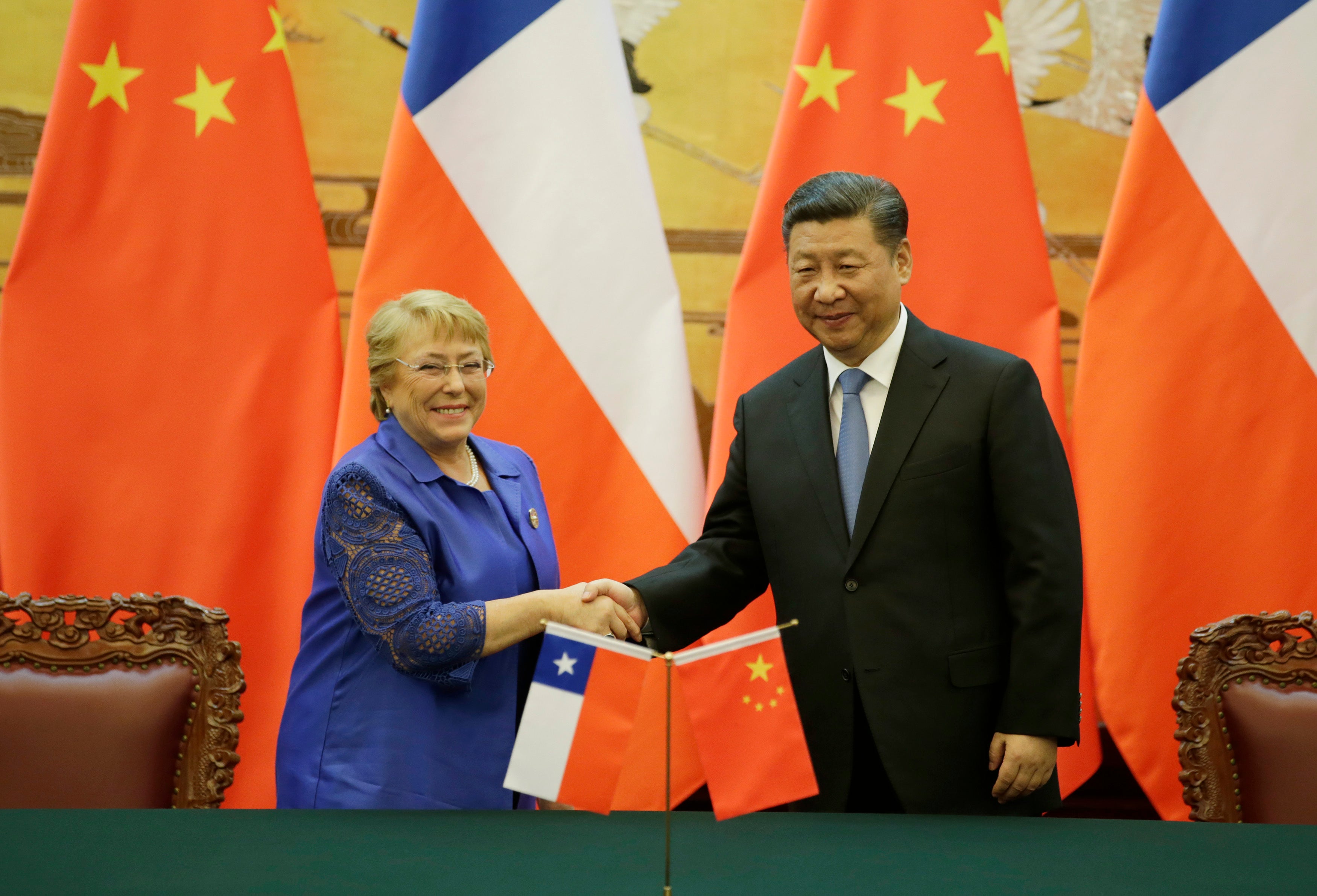UN team reaches China ahead of human rights chief’s first visit since 2005
There are doubts over whether Michelle Bachelet and her team will be able to move freely around the country, particularly given China’s strict Covid restrictions

Your support helps us to tell the story
From reproductive rights to climate change to Big Tech, The Independent is on the ground when the story is developing. Whether it's investigating the financials of Elon Musk's pro-Trump PAC or producing our latest documentary, 'The A Word', which shines a light on the American women fighting for reproductive rights, we know how important it is to parse out the facts from the messaging.
At such a critical moment in US history, we need reporters on the ground. Your donation allows us to keep sending journalists to speak to both sides of the story.
The Independent is trusted by Americans across the entire political spectrum. And unlike many other quality news outlets, we choose not to lock Americans out of our reporting and analysis with paywalls. We believe quality journalism should be available to everyone, paid for by those who can afford it.
Your support makes all the difference.A United Nations delegation has reached China ahead of Michelle Bachelet’s visit to Xinjiang, which is expected to take place next month.
The team is currently under quarantine in Guangzhou before heading to Xinjiang province, according to the South China Morning Post.
Ms Bachelet has been negotiating with the Chinese government since 2018 to allow the UN human rights body “unfettered, meaningful access” to Xinjiang and to interview people from the civil society in China without any kind of government supervision.
Last month, Ms Bachelet announced that she had reached an agreement with the Chinese government and will visit the country in May.
She will be the first UN rights chief to visit China since 2005.
China is accused of carrying out mass internment, torture and persecution of Uighur Muslims in the Xinjiang region. Millions of Uighurs, Kazakhs and other predominantly Muslim ethnic groups living in Xinjiang are reportedly subjected to a campaign of subjugation and forced assimilation, compelled to abandon their religious traditions, cultural practices and local languages.
The UN has previously said it is concerned by reports that, in order to achieve political indoctrination and forced cultural assimilation, China has undertaken a campaign of arbitrary mass detention in Xinjiang. China has been repeatedly accused in recent years of targeting Uighurs in particular within the country as well as outside.
Beijing has consistently denied the allegations, however. After initially denying the existence of its internment camps in Xinjiang, it now says they are centres for voluntary vocational training, and that this and other policies in the region are designed to counter terrorism operations.
Confirming the arrival of the initial UN delegation, spokesperson Liz Throssell said: “The five-member team was there at the invitation of the [Chinese] government.”
Both the delegation and the UN human rights commissioner “will go or are due to go to Xinjiang, and obviously visit Beijing and other locations”, she added.
Ms Bachelet had said at the time of announcing the agreement that she was “pleased” to visit Beijing.
But given China’s strict Covid restrictions, many are doubtful whether Ms Bachelet and her team would be able to freely move around the country.
China’s foreign ministry spokesperson, Wang Wenbin, also confirmed that the UN team has reached China and is currently in isolation.
He said: “What I want to tell you is that the purpose of the visit of the high commissioner for human rights is to promote exchanges and cooperation between the two sides. We have always opposed the use of this matter for political manipulation.”
Sophie Richardson, China director at Human Rights Watch, has said that the “Chinese government has given no indication that the UN high commissioner will be allowed to see anything they don’t want her to see”.
She added that Ms Bachelet “should not fail victims of crimes against humanity and other grave abuses by enabling Chinese authorities to manipulate her visit”.
“Without an ambitious and robust agenda to advance human rights in China, Bachelet’s visit risks empowering the abusers, not their victims,” Ms Richardson said. “High Commissioner Bachelet should leave a legacy as someone who stood up to Beijing, not someone who let down those who suffer under it.”
Join our commenting forum
Join thought-provoking conversations, follow other Independent readers and see their replies
Comments